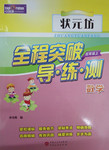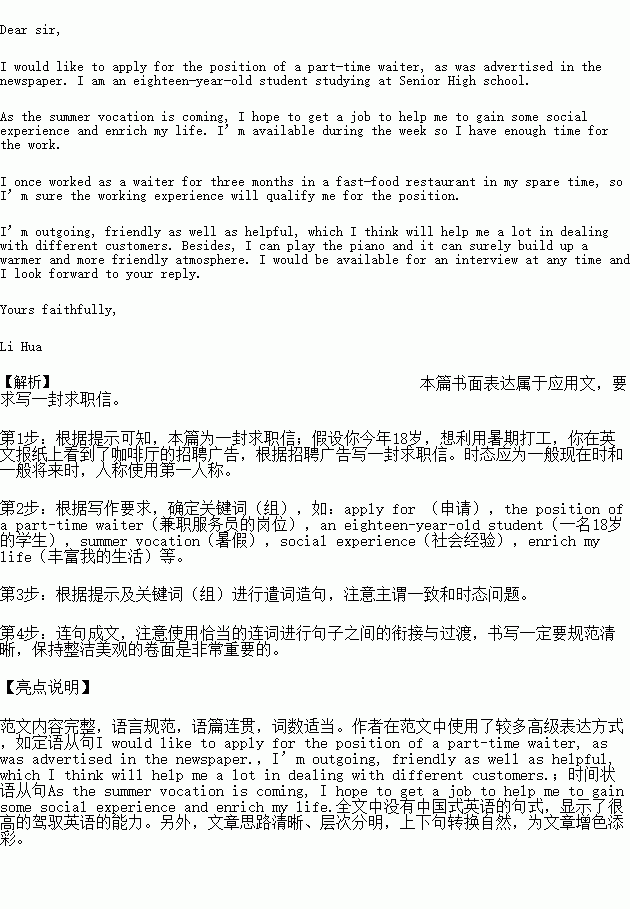题目内容
假设你叫李华,今年18岁,想利用暑期打工,你在英文报纸上看到了咖啡厅的招聘广告。请根据下面的广告写一封求职信。
TEMPORARY JOB OFFER
Age 18-24
To work in busy center café.
Must enjoy working with people.
Previous experience necessary.
Good pay.
Tel. 01 222 643
注意:
1. 词数100左右;
2. 可以适当增加细节;
3. 开头和结尾已给出。
Dear Sir,
_________________________________________________________________________________________
______________________________________________________________________________________________________________________________________________________________________________________________________________________________________________________________________________________________________________________________________________________
Yours sincerely,
Li Hua
练习册系列答案
 状元坊全程突破导练测系列答案
状元坊全程突破导练测系列答案
相关题目

